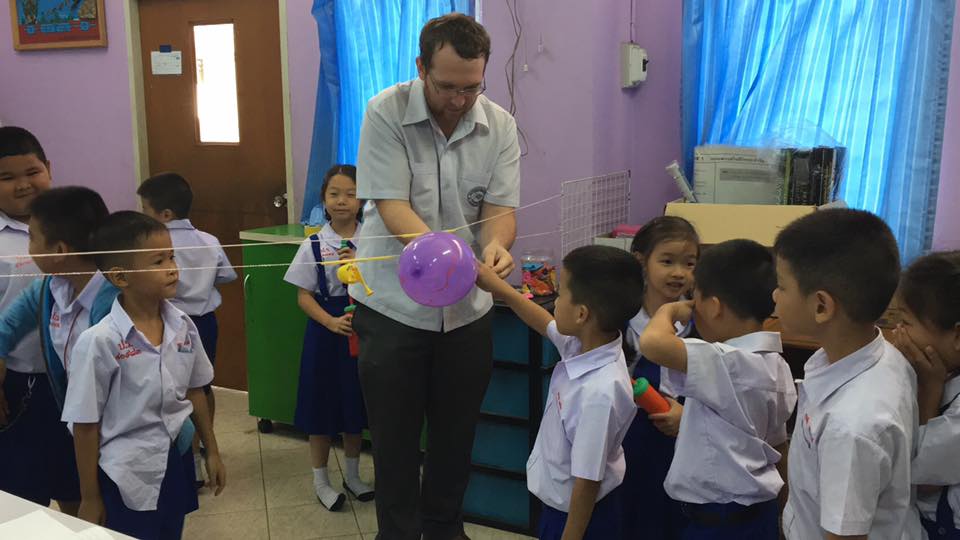Teaching English abroad is the perfect way to leave your corporate job behind and immerse yourself in a new culture and work environment. Teaching English abroad affects everyone differently, but it certainly changes lives. It changes the lives of the students, their families, and the other teachers you work with. It also will certainly change your life for the better. In ways that you will never know, until you try it out yourself. Many teachers plan on only teaching for six months, which turns into one year, and even three in the case of many Settle in Abroad teachers. We strongly believe that everyone should teach English (or their native language abroad) for at least one year of their life.
No matter how long you teach, you’ll always remember how it felt to be a teacher in Chiang Mai, Thailand. You’ll also never forget the names and faces of the students who you realize may have even taught you more than you could have ever expected.
We would not suggest teaching for less than 6 months. If you arrive during our April start date, you will sign a one year contract with the school. Most private schools do not have large penalties for not completing your contract, many teachers leave after one semester, but it will just be difficult to leave the students. Emergencies happen, teachers need to return to their home country, it is completely understood. But if you can control it, we encourage you to teach for a full year.
If you arrive in the end of September for our October start date, you will sign a contract for 6 months, until March. If you like the school you’re at, you most likely will have the opportunity to sign another contract with the school for the following year. This is great because you will then have March, April and mid May summer holiday! Travel your heart out! Many schools will also pay you in full during these two months off.
If you’re teaching at a private or government school in Chiang Mai, you teach about twenty hours per week depending on your exact contract. That means you teach about 3-4 hours per day. Most schools require that you be in the school from 7:45am - 4pm Monday - Friday. So that means you have plenty of time in your office on your laptop to work on any personal projects that you may have never had the time to do before. This is the perfect time to start that blog you’ve always wanted to or to kick start your freelance writing career.
You are required to plan your lessons during your non teaching hours, but once you get used to your school’s format and your own teaching rhythm, your lessons will get easier and easier to make.
When people reach out to us about getting teaching positions, their main concern is that they usually don’t have teaching experience. That is completely fine. It is helpful to have experience with children, so we encourage teachers to pick up a side job tutoring or do a summer camp before coming to Chiang Mai. In many cases that isn’t possible, so we train them to be teachers through the online TEFL we offer.
For teachers that are not comfortable with public speaking and are very worried about teaching in front of a class, we encourage them to do an in person TEFL. We are partnered with an amazing TEFL school in Chiang Mai. You will be a part of a three week course with about thirty other new teachers. You will learn the ins and outs of teaching English abroad and get real in class practice at a few different schools in the city.
Many skills learned while teaching abroad, surprisingly translate to future jobs and even boosts some people’s entrepreneurial spirits. If our founder, Amanda, never taught English in Chiang Mai, Settle in Abroad wouldn’t exist.
















